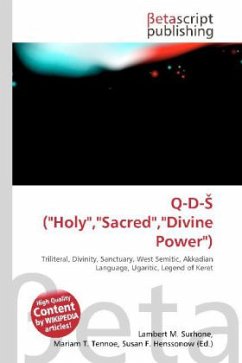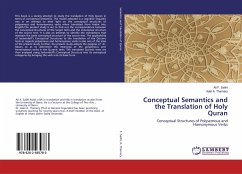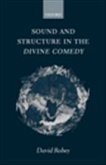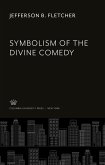Please note that the content of this book primarily consists of articles available from Wikipedia or other free sources online. Q-D- is a common triconsonantal Semitic root form used in various ancient and modern languages since at least the 3rd millennium BCE. The meanings expressed by this root are "Holy", "Sacred", "Divine Power", "To Set Apart", and "Sanctuary". The root is Q-D- in Aramaic, Hebrew, Syriac, and reconstructed Phoenician, and Q-D-S in Arabic and Ge''ez. The root qd was used frequently in West Semitic languages as a verb meaning "consecrate", whereas in Akkadian texts, the verb conjugated from this root meant to "clean, purify." It could also be used as an adjective meaning "holy", and a substantive referring to a "sanctuary, sacred object, sacred personnel." It was used this way in Ugaritic, as for example, in the words qid u (meaning "holy place" or "chapel") and qad(i) u (meaning "consecrated gift" or "cultic personnel"). In some Ugaritic texts, qd is used as a divine epithet. For example, the gods are referred to as "the sons of holiness" or "the holy ones" (bn qd ), and in the 2nd millienium BCE epic poem the Legend of Keret, the hero is described as "the son of El and the offspring of the Benevolent One and qd ".
Bitte wählen Sie Ihr Anliegen aus.
Rechnungen
Retourenschein anfordern
Bestellstatus
Storno








